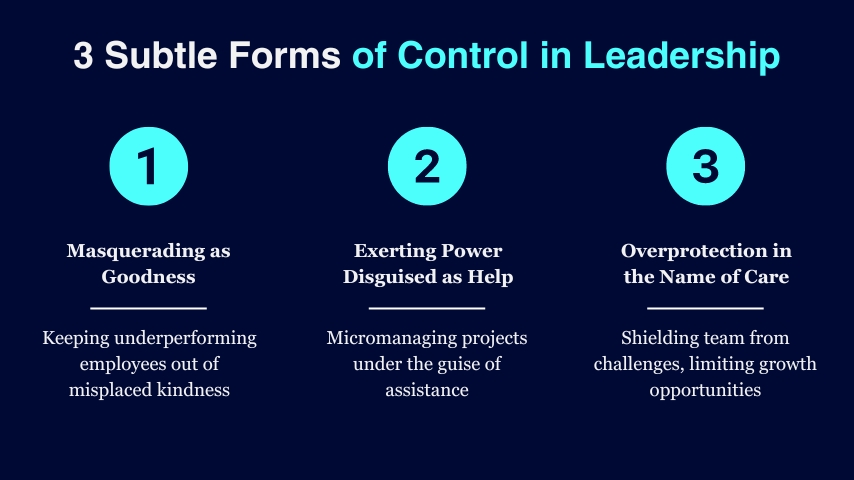
"That" Boss
We've all had that bad boss.
- The boss you tried to avoid when he was around.
- The boss who controlled everything you did.
- The boss you never wanted to make eye contact with if she was looking your direction.
These are pretty obvious examples of a manager leading their team with fear and control.
But, in a world where many leaders resort to fear-based control tactics, one iconic CEO bucked the trend and found incredible success by doing the opposite. You may not know the name, but you know the business.
Herb Kelleher and Southwest Airlines
Herb Kelleher, the co-founder and former CEO of Southwest Airlines, became renowned for his distinctive leadership philosophy.
Rather than micromanaging his employees or tightly controlling every aspect of the business, Kelleher empowered his team, giving them a high degree of autonomy and responsibility. He focused on hiring the right people, instilling a strong culture, and then getting out of their way so they could thrive.
Kelleher understood that when you treat your employees like trusted partners rather than subordinates, something magical happens. They become invested in the company's success, taking genuine ownership of their work. Morale and engagement skyrocket, creativity is unleashed, and a family-like culture emerges that transcends the typical drudgery of too many workplaces today.
Under Kelleher's leadership, Southwest became one of the most beloved and successful airlines in the industry, renowned for its exceptional customer service and innovative spirit.
Now, you might say, “That’s an exception to the rule. You can’t mimic that sort of culture in a different sort of business. That’s not replicable.”
Herb Kelleher focused on hiring the right people, instilling a strong culture, and then getting out of their way so they could thrive.
To that I’d say, check out Thrive Restaurant Group. What they’ve accomplished is nothing short of the restaurant equivalent of Southwest’s transformation within the airline industry.
Replicating Thrive's Successful Leadership Philosophy
I recently interviewed the Chief People Officer for Thrive, Ryan Bond. I got to know him two years ago, and I now consider him a friend and a true inspiration in my own leadership journey. Two years ago he joined me on The Frontline Industry Podcast to talk about Thrive’s leadership philosophy of leading with “love and release,” a dramatic departure from leading with fear and control.
What is “love and release?” According to Ryan:
"Love and release is this posture that we want to take as leaders that frees people to become their natural best selves at work. We want them to have responsibility for their work. We want them to master their work. We want them to feel ownership of it. And so, love and release is this cycle that builds on itself, helping people rooted in trust to become who they're supposed to be."
3 Ways Fear and Control Can Subtly Manifest in Leadership
Sometimes in order to understand what something is, we need to understand its opposite, what it is not. So, let’s consider what Ryan calls “leading with fear and control.” What are some nefarious, sneaky ways that fear and control can subtly manifest in your daily leadership style or leadership decisions?
- Fear and control can manifest as goodness. Ryan gives the example of not letting someone go (even when you know it is the right decision) because of the negative impact it might have on their family. Keeping someone in a role they should not be in can create incredible resentment, frustration, and disruption among other team members who also realize that this individual should no longer be with the company. It is not loving to do the wrong thing and then justify it as “goodness” or “being nice.”
- Fear and control can manifest as exerting power over others, such as micromanaging a project you’d assigned to them and thinking, “I’m doing this for their own good.” Concern that a team member is struggling and may fail can cause you to exercise brute force as you seek to reduce risk. But is that the loving thing to do? Or is it based out of fear? There are times where you need to lead with strength, but there are other times where fear causes you to take over and control a situation, in effect removing a team member’s autonomy and dictating their decisions. Be careful to determine what you are doing and why.
- Fear and control can manifest as truly caring for others. Ryan uses the example of parents who say, “I love you, so I'm going to just keep you close and not let you have any experiences…I’m not going to put you in danger.” We all can recognize the “helicopter parents” who swoop in and control outcomes, ensuring that no potentially negative experiences happen to their children. By removing risk and potential pain, we sometimes manifest fear instead of love and care.


I know in my life fear manifests a lot as #3 above. I take charge to ensure that the best possible outcomes are delivered, sometimes to the detriment of those around me whom I need to release (think, “love and release”) so they can grow, improve, and thrive. My control literally stands in the way of the growth and self-actualization of others when I fall into this trap, and if I’m honest, I’m not even near addressing this issue in my life. It’s a significant challenge I must conquer to be the best leader I can be.
A Challenge to Leaders
I’ll leave you with a challenge that Ryan gave me and the listeners of the podcast:
I want you to just think about one person on your team right now—one person who... if you released them... if you let go of one subtle aspect of your control over them in the work that you do together… maybe it's preparing a communication that's going out that you don't double check, maybe it's giving them ownership over putting together an analysis and then presenting… I don't know what it might look like in your context… but what would it cost you to give someone that freedom at the cost of your own perceived safety to see what happens?
Listen to the full podcast conversations featuring Ryan Bond in Part One and Part Two.
About the Author


Joel Onyshuk | Atana Senior VP of Sales
As the Senior VP of Sales at Atana, Joel Onyshuk is driven by his passion for building high-performance teams. Equipped with a Bachelor of Science in Psychology, he is committed to understanding human behavior and unleashing the potential of those around him. In addition to leading Atana's sales efforts, Joel hosts the Frontline Industry Podcast where he engages in conversations with top senior executives who share leadership best practices and ways to positively impact company culture.


Joel Onyshuk | Atana Senior VP of Sales
As the Senior VP of Sales at Atana, Joel Onyshuk is driven by his passion for building high-performance teams. Equipped with a Bachelor of Science in Psychology, he is committed to understanding human behavior and unleashing the potential of those around him. In addition to leading Atana's sales efforts, Joel hosts the Frontline Industry Podcast where he engages in conversations with top senior executives who share leadership best practices and ways to positively impact company culture.







